In a world marked by rising geopolitical tensions, a stagnating European economy, and increasingly complex regulations, a growing number of entrepreneurs are turning to alternative markets.
Brunei Darussalam – a small yet capital-rich state in Southeast Asia – has emerged as an unexpected but highly promising destination. Its combination of economic stability, geopolitical neutrality, favorable tax regimes, and a straightforward legal framework makes it particularly attractive for entrepreneurs and investors seeking both security and growth.
Economic fundamentals: A small country with enormous potential
Brunei’s economy is traditionally driven by oil and gas, which account for approximately 60% of GDP and over 90% of export revenues. Whereas some countries fall victim to the so-called “resource curse,” Brunei is investing heavily in long-term economic diversification. Under its national development plan Wawasan Brunei 2035, the country is actively investing in infrastructure, tourism, the halal industry, agriculture, and ICT.
According to the Asian Development Bank, GDP growth for 2025 is projected at approximately 2.5–3%—significantly higher than in most Western European countries, where growth is expected to remain below 2% during the same period. Brunei also boasts a large foreign reserve, a virtually debt-free government, and a structurally positive budget balance.
Wealth & Digital Trust Services
Protect, grow, and earn – with licensed wealth and digital trust solutions.
Wealth today extends beyond savings, shares, and property. Digital assets such as cryptocurrency and tokenized investments are increasingly part of modern portfolios.
Our Wealth & Digital Trust Services unite all your assets into a single, secure, and fully licensed trust structure designed to protect, manage, and grow your capital.
Read more →

For SMEs, this translates into access to a stable, high-purchasing-power domestic market and opportunities in emerging sectors where local players actively collaborate with foreign investors.
Political stability and government continuity
While entrepreneurs elsewhere often struggle with rapidly changing regulations, Brunei offers consistent and predictable governance. The country is an absolute monarchy led by Sultan Hassanal Bolkiah, who has ruled since 1967. The Sultan enjoys broad public support due to extensive welfare programs such as free healthcare, education, and public housing.
This political stability translates into economic stability as well. On the World Bank’s “Political Stability and Absence of Violence” index, Brunei scores +1.37—significantly above the global average and even higher than some EU member states.
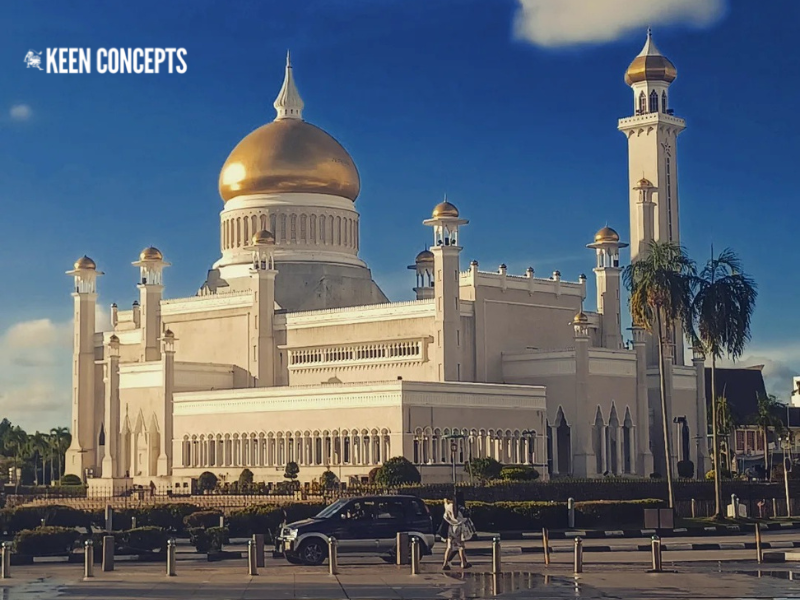
Legal certainty and corporate law
Brunei operates a dual legal system: English-based common law for civil, commercial, and corporate matters, and Sharia law for personal and religious affairs. For entrepreneurs, this means legal certainty in commercial transactions, with full recognition of international arbitration agreements.
Key features of Brunei’s corporate legal system include:
- Corporate structures: Foreigners can retain full ownership through International Business Companies (IBCs) or local Limited Companies.
- Use of Labuan IBCs: IBCs registered in Labuan (Malaysia, under Bruneian influence) are often used as vehicles for international trade or asset holding.
- No capital requirement: There is no minimum capital requirement to establish a company.
- Flexible shareholder structure: Nominee shareholders and directors are allowed, provided they are properly regulated.
Tax climate: Business without the burden
Brunei is considered one of the most tax-friendly jurisdictions in the world. Key features include:
- No VAT or sales tax
- No income tax for sole proprietorships or limited companies with annual revenues below BND 1 million
- Corporate income tax of 18.5% above BND 1 million, though full exemptions apply in certain sectors or via international structures
- No capital gains tax for gains under BND 1 million
- No withholding tax on dividends, interest, or royalties
- In many cases, no personal income tax at all
Geopolitics: A neutral gateway to ASEAN
Strategically located on the northern coast of Borneo and bordering Malaysia, Brunei is a full member of ASEAN (Association of Southeast Asian Nations)—a market of over 670 million consumers. The country acts as a bridge between Islamic values, Western business norms, and Chinese economic influence.
From a geopolitical standpoint, Brunei can be characterized as remarkably stable:
- Strong relations with both China and Western countries
- No internal ethnic conflicts or border disputes
Labour market and migration policy
Brunei has a relatively small domestic workforce, with many roles filled by foreign labor. For knowledge-based businesses, attracting foreign professionals is relatively straightforward through:
- Work Pass (Employment Visa): Available for expatriates in specialist roles
- LTPs: A new visa type introduced in March 2025 for foreign investors
- Simple registration procedures at the Department of Labour
Sector opportunities for SME entrepreneurs
The Bruneian government actively seeks partnerships in:
- Sustainable housing and real estate development (including flexible rental models)
- Tourism & hospitality (including villa rental and F&B services)
- Halal certification & food industry
- ICT & digital services (including government-led digitalization projects)
- Agrofood & aquaculture (with government-backed subsidies)
Especially SME entrepreneurs with a hands-on approach, technological expertise, or export experience are welcomed as “value adders.”
Conclusion
Brunei is more than just a petrostate. It offers a stable, legally secure, fiscally advantageous, and geopolitically neutral environment for entrepreneurs seeking expansion.
The low tax burden, political stability, and active governmental support for economic development makes Brunei a unique business location.
For agile SMEs looking to benefit from growth markets, Brunei can serve as a smart and scalable hub into the ASEAN region.
Want to know more about doing business in Brunei?
Contact Nomair van Wijk for tailored advice and insights.



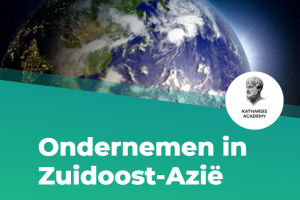
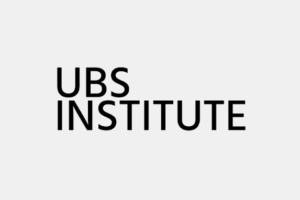

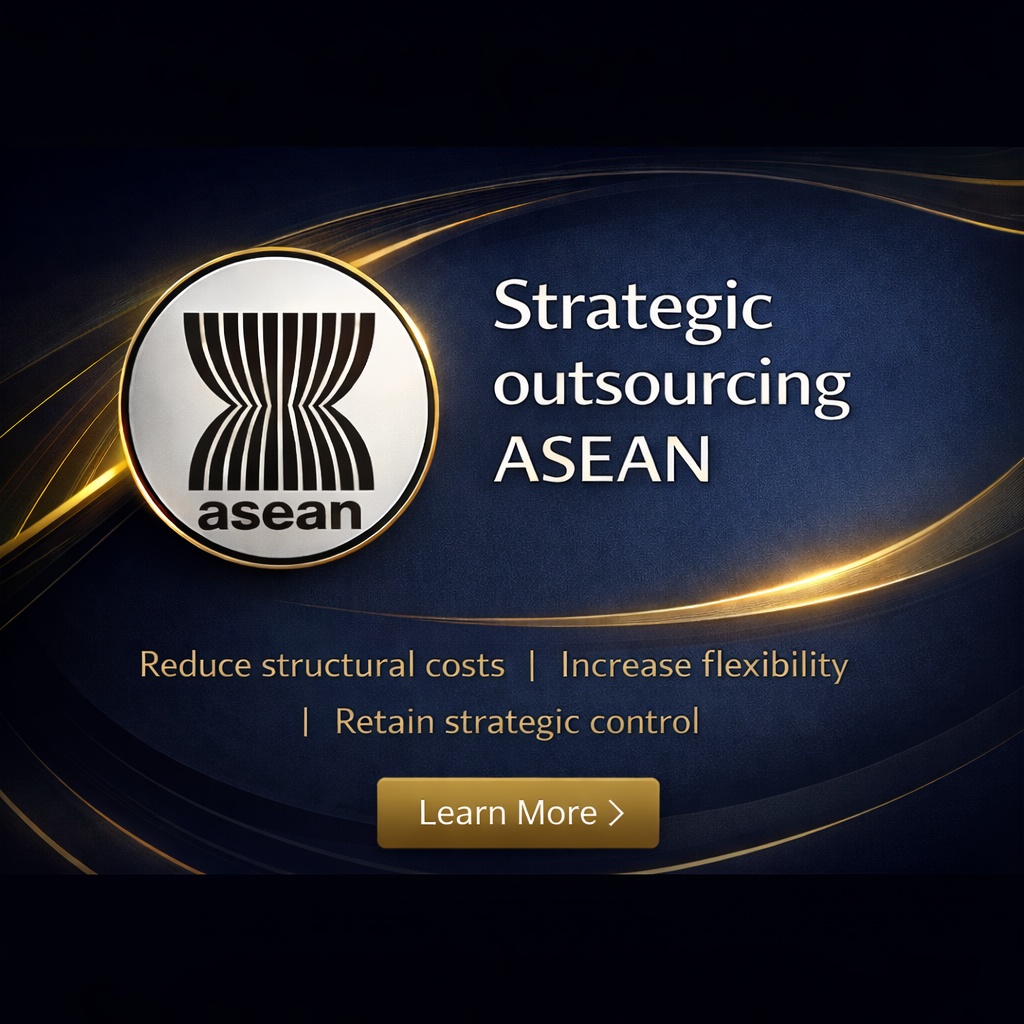
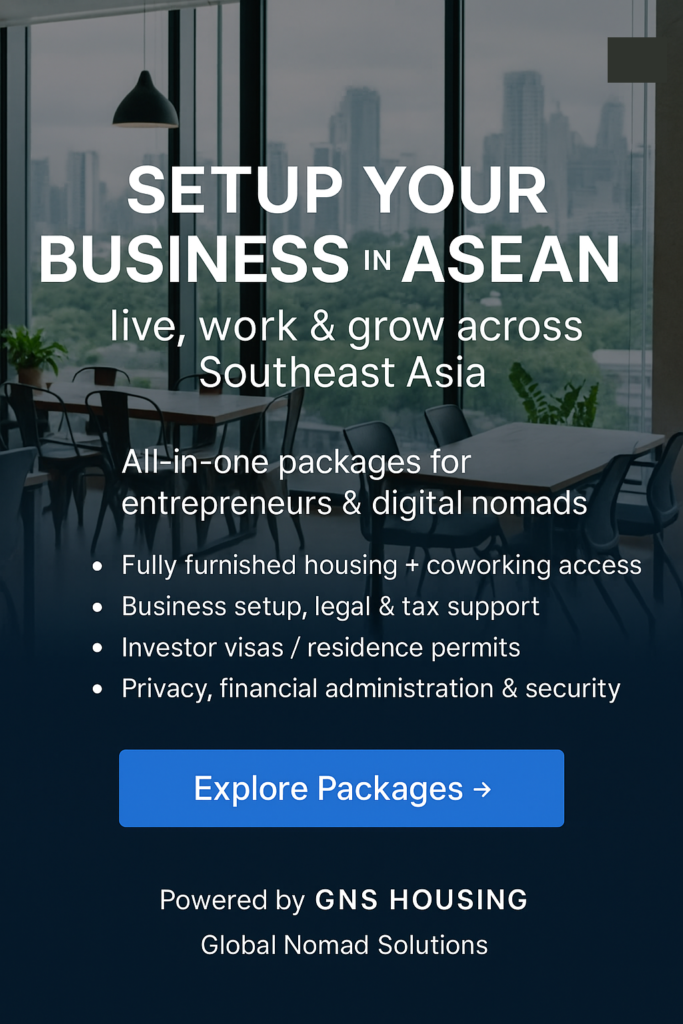
Reageer op dit bericht